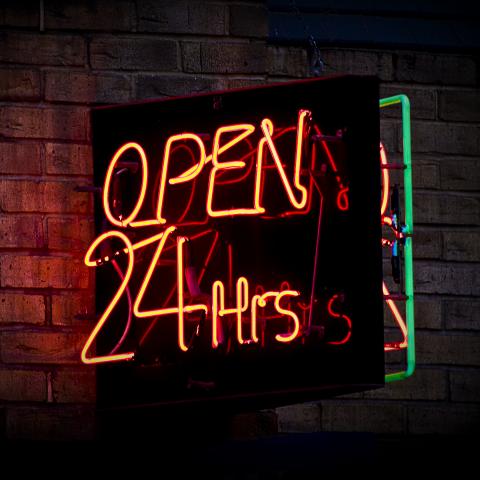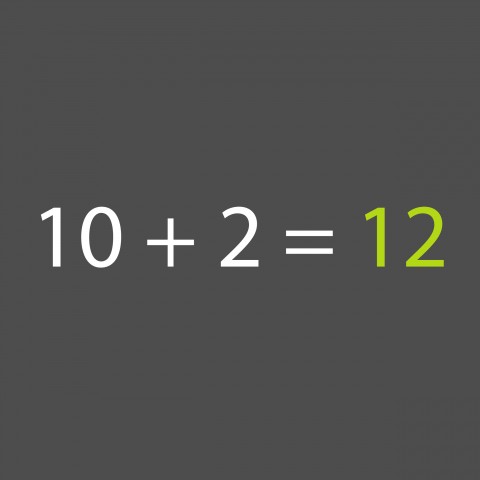
Every language has certain words that are impossible to translate. Such words lack direct equivalents, which sometimes makes it difficult to explain all that they entail. Fortunately, it’s usually possible to express the same idea in a different language by using many words.
As a Polish learner, you’ll receive a number of benefits from studying the most common untranslatable Polish words and phrases. Because many of these terms have idiomatic meanings related to Polish culture, learning them will help you sound more like a native speaker and broaden your view of the world.
In this article, we’ll introduce you to several Polish words that have no equivalents in English. Let us know which one is your favorite!
Start with a bonus, and download the Must-Know Beginner Vocabulary PDF for FREE! (Logged-In Member Only)
 Table of Contents
Table of Contents
- Byle Jak
- Kolega / Koleżanka
- Załatwić
- Doba
- Kombinować
- Kilkanaście
- Pogodnie
- Smacznego
- Kamienica
- Popita
- Final Thoughts
1. Byle Jak

Our list of Polish words with no English equivalent starts with the expression byle jak, which scores quite high when it comes to untranslatability. Here’s all you need to know about it:
| Literal translation | Anyhow |
| Meaning | To do something carelessly just to get it done, or to feel so-so |
| When to use it | 1) When commenting on someone’s work 2) When commenting on one’s unwillingness to do something that needs to get done 3) To comment on poor well-being at a given moment |
| Examples | 1) On zawsze wszystko robi byle jak. He always does everything just to have it done. 2) Nie chcesz to nie rób, ale jak robisz to nie rób byle jak. If you don’t want to do it, don’t do it. Don’t do it carelessly, though. 3) Czuję się dziś byle jak. I’m not feeling that great today. |
Knowing how to talk about your well-being is an important skill. Check out our lesson Are You Feeling Okay in Poland? to get a headstart!
2. Kolega / Koleżanka
Two more essential untranslatable words in the Polish language are kolega (masculine) and koleżanka (feminine).
| Literal translation | Colleague (male or female) |
| Meaning | This term refers to a person whose relationship with the speaker can be described as more than an acquaintance (znajomy [m] / znajoma [f]) but less than a friend (przyjaciel [m] / przyjaciółka [f]). |
| When to use it | When a third party is mentioned during a conversation, these terms might be used to indicate their relationship to the speaker. Such a relationship is relatively close, but not too close. Kolega and koleżanka are often used for anecdotal stories. For example, to make their story more convincing, someone might use this term to say that it happened to someone they know without giving away that person’s name. |
| Examples | Moja koleżanka opowiedziała mi coś bardzo podobnego. My relatively close acquaintance told me something similar. |
All kinds of relationships are important in life, though defining friendship in Poland may prove difficult at times. You can gain more cultural insight by checking out our lesson Visiting a Polish Friend.
3. Załatwić
| Literal translation | To sort out |
| Meaning | To take care of something; to get something done, often in an indirect manner |
| When to use it | 1) When announcing to someone that things will get done 2) When asking someone to do something for us, or to suggest one’s willingness to negotiate in order to reach a common goal |
| Examples | 1)Nie martw się, jakoś to załatwię! Don’t worry, I’ll get it done somehow! 2)Jest Pani pewna, że tego nie da się załatwić? Are you sure it can’t be done? |
| Note | This expression dates back to Communist Poland. As many products weren’t officially available, people had to figure out how to get them. That meant they’d sometimes negotiate an exchange, where they would offer a bribe in order to get what they needed. In other words, there was a constant need to załatwić. |
4. Doba

| Literal translation | N/A |
| Meaning | A 24-hour time period |
| When to use it | This word refers to something that takes place over the course of a full day and a full night. In English, we would simply say “day” in this context, but that can sometimes cause confusion. After all, a “day” can refer to either 12 hours or 24 hours, depending on the context. |
| Examples | Ten sklep jest otwarty całą dobę. This shop is open 24/7. |
| Note | A related word is całodobowy, which is an adjective used to describe things that never close. |
5. Kombinować
This is another Polish word with no English equivalent that dates back to Communist Poland. Take a look:
| Literal translation | To combine |
| Meaning | To make things happen; to figure something out; to organize something, sometimes in a cheeky way |
| When to use it | 1) When someone needs to find a solution to a problem 2) When someone must be dishonest to get out of a difficult situation 3) When things need to happen under less-than-ideal circumstances |
| Examples | 1) Polacy wiedzą jak kombinować. Polish people know how to make things happen. 2) Wykombinuję, co mu powiedzieć. I’ll figure out what to tell him. 3) Sytuacja nie jest idealna, ale coś tam się wykombinuje. The situation isn’t perfect, but we’ll come up with something. |
| Note | The origin of this word is similar to that of załatwić, which we saw earlier. For this reason, it can be used both as a positive word to praise resourcefulness and as a negative word to imply that someone isn’t straightforward or honest. |
6. Kilkanaście

| Literal translation | There’s no literal translation for this unique Polish word; it has the word kilka (“a few”) in it. |
| Meaning | An unspecified number between eleven and nineteen |
| When to use it | It’s typically used when talking about an unspecified amount of money or someone’s age. It more or less indicates the number when the speaker doesn’t know the exact number or doesn’t think it’s relevant. |
| Examples | Nie wiem w jakim jest wieku. Ma kilkanaście lat. I’m not sure what age she is. She’s between eleven and nineteen. |
While this untranslatable Polish word is certainly useful for guesstimating a number, it’s also important to learn how to count in this language. We recommend checking out the following lessons on PolishPod101.com:
7. Pogodnie
While this distinctive Polish word has no English equivalent, it’s rather similar to “a sunny disposition” or “pleasant weather,” depending on the context.
| Literal translation | “Weatherly” |
| Meaning | “Nice” when talking about the weather or “positive” when talking about an attitude |
| When to use it | Someone can have a pogodnie attitude about life or take things pogodnie. This word is also used to talk about good weather with no clouds or rain. |
| Examples | Ale dziś jest pogodnie! The weather is so nice today! |
| Note | There’s a related adjective, pogodny, which means “cheerful.” |
The weather can really make or break your plans in Poland. Head over to our lesson What is the Polish Forecast Saying? to learn some weather-related terms and how to use the future tense.
8. Smacznego

This beautiful untranslatable word in Polish is similar in meaning to expressions used in other languages, but it does have its own special nuance.
| Literal translation | “of taste” |
| Meaning | Enjoy the food you’re eating. |
| When to use it | Used to wish someone a tasty meal |
| Examples | Mam nadzieję, że wam posmakuje. Smacznego! I hope you’ll like it. Enjoy your meal! |
| Note | There are a few related untranslatable Polish phrases that are often used in the same context: coś smacznego – “something tasty” smaczny – “tasty” smakować – “to taste good to someone” |
Polish food can be very delicious. Do you know the top 5 Polish dishes?
9. Kamienica
Kamienica is another untranslatable word in Polish that has a lot to do with Polish culture and history.
| Literal translation | Untranslatable, but it relates to something made of stone (kamień) |
| Meaning | This term refers to a particular kind of tenant building that lost popularity in the 20th century, but is still very much present in Poland. |
| When to use it | When referring to this kind of building |
| Examples | Ona mieszka w pięknej przedwojennej kamienicy. She lives in a beautiful pre-war tenant building. |
| Note | There have been many notable arguments over the ownership and demolition of kamienice, which is why the word is very present in Polish life nowadays. |
10. Popita

Now, let’s look at a word directly related to Polish drinking culture!
| Literal translation | After-drink |
| Meaning | A non-alcoholic beverage drank after a shot of vodka in order to kill the strong taste of the spirit |
| When to use it | This word is often used when discussing what to get for a party, though we can also ask someone whether they have it. |
| Examples | A popita gdzie? And where is the after-drink? |
| Note | Other words related to the drinking culture in Poland are zagryzka, zagrycha, and przegryzka, which all refer to a snack that’s eaten when people drink vodka. |
There are many Polish alcoholic beverages you should try. Here’s a list of eight must-try Polish regional alcoholic drinks.
11. Final Thoughts
There are many more untranslatable Polish phrases and words not covered in this article, as we just focused on the most important and common ones. Remembering the words from this list will help you understand Polish people better and give you the confidence you need to handle daily conversations while in Poland. Just imagine: You won’t have to ask your Polish friends or family for a lengthy explanation every time one of these words comes up!
While it’s good to know untranslatable words, there is a lot more to language learning! If your goal is to be able to express yourself and understand others in Polish on any occasion, you have much more learning ahead of you.
Fortunately, there’s PolishPod101. It’s our goal to help you achieve your Polish learning goals in the fastest, easiest, and most fun way possible! With the help of our countless lessons, recordings, videos, and personalized functionalities, you’ll notice your Polish improving in no time.
Don’t hesitate.
Create your free lifetime account today!
Start with a bonus, and download the Must-Know Beginner Vocabulary PDF for FREE! (Logged-In Member Only)













